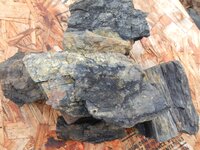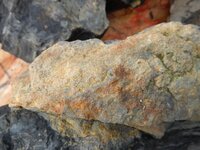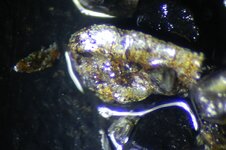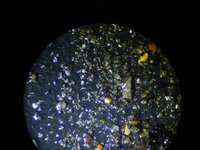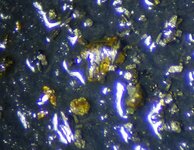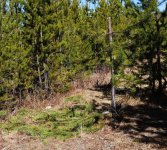Ragnor
Sr. Member
- Dec 7, 2015
- 445
- 422
- Primary Interest:
- All Treasure Hunting
Well, I been looking into it. My brother and I have been trying to get as good of understanding as we can of the processes involved. It seams there are two kinds of supergene. One where the calcite vein material gets disolved by sulphuric acid causing the gold to mobilize down the vein forming a pocket and another where the gold and sulphides are actually disolved into solution and travel until they come in contact with a basic component causing the gold to precipitate.
I think my undersanding is pretty clear on the first case. However I am wondering if anyone can better explain the chemistry of the second type described here.
What actually disolves and mobilizes the gold bearing material and sulphides. Sure sulphuric can disolve some materials but wouldnt it need a nitric component to disolve the gold? and what exactly would precipitate it? The best we have figured out is gypsum or somthing of that nature?
Would testing for basic ground conditions then indicate favorable conditions for supergene enrichment in a primarily acid environment?
Hows it all work? Can anyone steer me to good sorces of information or explain it real clear for me?
I suppose I need to read the disertation on basement chemistry again....
The area we will be prospecting next year is a group of sulphide ore bodies, mostly dikes and maybe a few chimeny's. Some of which seam to have formed under water and some perhaps not. We know that some precipitates are formed in thick layers of red iron tetroxide. But we are not sure what basic ph indicators we should be looking for aside from gypsum. Some of the precipitate is also formed in clays.
Officially the free milling gold is associated with a hornfelds halo surrounding the sulphide bodies
I am attempting to get my hands on a manuscipt that should shed some more light on the subject. But I'm hoping perhaps I can gleen some information from here in the mean time.
We are in the Western Cascades in Washington not much carbonates here that I am aware of. I recon the acidic material must come into contact with basalt then and that precipitates the material? If so then what other materials would form indicating a nuetralized acid solution?
Anyone know how that works?
I think my undersanding is pretty clear on the first case. However I am wondering if anyone can better explain the chemistry of the second type described here.
What actually disolves and mobilizes the gold bearing material and sulphides. Sure sulphuric can disolve some materials but wouldnt it need a nitric component to disolve the gold? and what exactly would precipitate it? The best we have figured out is gypsum or somthing of that nature?
Would testing for basic ground conditions then indicate favorable conditions for supergene enrichment in a primarily acid environment?
Hows it all work? Can anyone steer me to good sorces of information or explain it real clear for me?
I suppose I need to read the disertation on basement chemistry again....
The area we will be prospecting next year is a group of sulphide ore bodies, mostly dikes and maybe a few chimeny's. Some of which seam to have formed under water and some perhaps not. We know that some precipitates are formed in thick layers of red iron tetroxide. But we are not sure what basic ph indicators we should be looking for aside from gypsum. Some of the precipitate is also formed in clays.
Officially the free milling gold is associated with a hornfelds halo surrounding the sulphide bodies
I am attempting to get my hands on a manuscipt that should shed some more light on the subject. But I'm hoping perhaps I can gleen some information from here in the mean time.
We are in the Western Cascades in Washington not much carbonates here that I am aware of. I recon the acidic material must come into contact with basalt then and that precipitates the material? If so then what other materials would form indicating a nuetralized acid solution?
Anyone know how that works?
Amazon Forum Fav 👍
Upvote
0


 I don't understand this science super well but this guy does
I don't understand this science super well but this guy does
